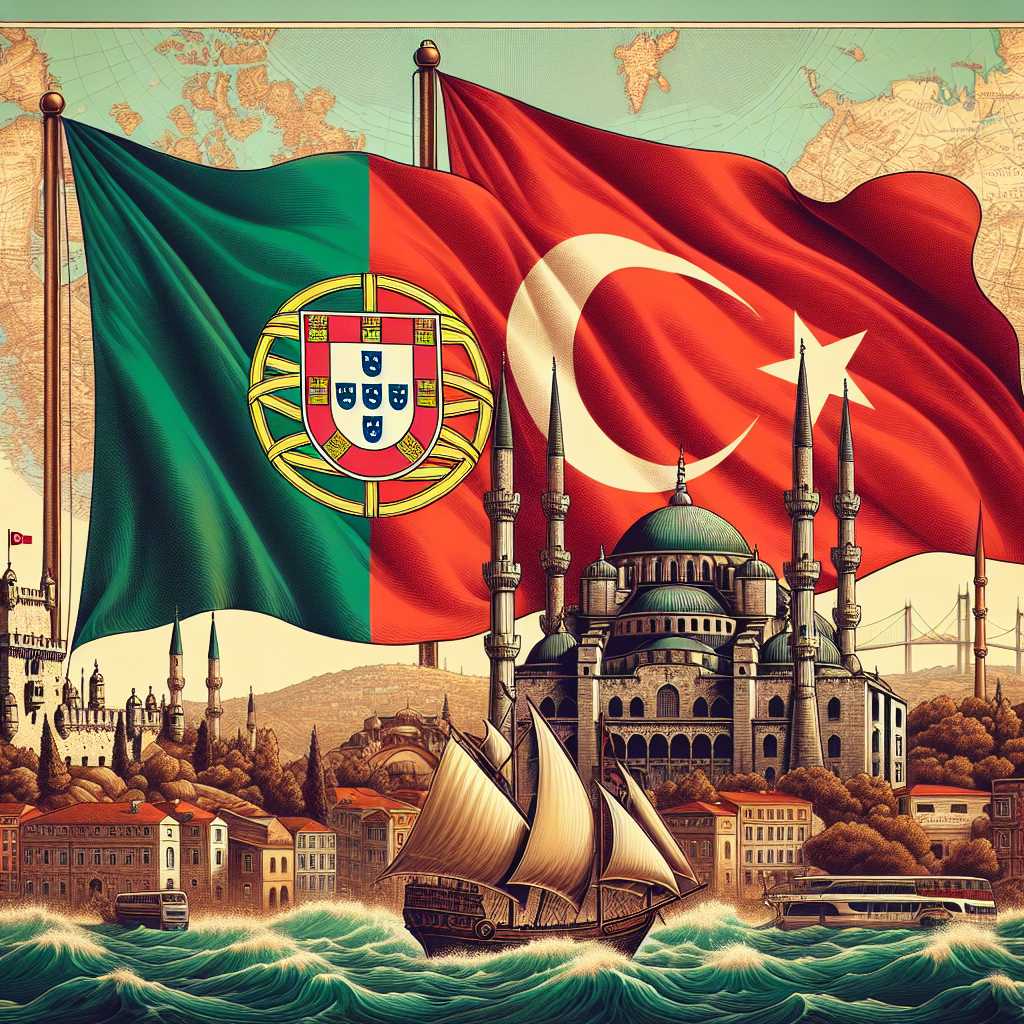Portugal vs. Turkey: A Comparative Analysis of Two Nations
The comparison between Portugal and Turkey extends across numerous dimensions, such as their geography, history, culture, politics, and economics. While the two countries are located in geographically distinct regions of Southern Europe and Western Asia respectively, they both have significant influence in their regions and shared histories of powerful maritime empires.
Geographic and Historical Overview
Portugal’s Geographic Context and Historical Underpinnings
Portugal is located on the southwestern edge of Europe, facing the Atlantic Ocean. Historically known for its Age of Discoveries, Portugal boasts a rich maritime legacy with explorers like Vasco da Gama who opened up new trade routes to India. The country’s history is lined with events that sculpted its development including its establishment in the 12th century, period of exploratory prowess in the 15th and 16th centuries, and the challenges it faced during the 20th century culminating in the Carnation Revolution of 1974 which transitioned Portugal to democracy.
Turkey’s Geographic Significance and Historic Prelude
Contrastingly, Turkey straddles both Europe and Asia, acting as both a bridge and a barrier between East and West. This has attributed it with a pivotal role in regional power dynamics historically as the seat of the Ottoman Empire, an entity that ruled vast territories across three continents for centuries. The Republic of Turkey was founded by Mustafa Kemal Atatürk in 1923 following the dissolution of the Ottoman Empire, charting a course toward secularism and modernization.
Cultural Wealth and Diversity
Exploring Portuguese Cultural Identity
In Portugal, the culture intertwines with history through music, cuisine, and folk traditions such as Fado music – a melodic but melancholic genre that resonates with the lives of sailors and common folk throughout Portuguese history. Portuguese is spoken not just as a native language of Portugal but also around the globe as a result of its once expansive empire.
Turkey’s Cultural Mosaic
Turkey’s culture is similarly diverse, with influences ranging from Central Asian nomadic traditions to remnants of Byzantine and Ottoman heritage. Its position as a meeting point of civilizations is reflected in its language—which underwent significant reforms under Atatürk—culinary tastes birthing famous dishes such as kebabs and baklava, and in expressions of art unique to its cross-continental identity.
Political Systems and Dynamics
Portugal’s Political Establishment
As a unitary semi-presidential representative democratic republic, Portugal has seen stability since the establishment of democracy in the mid-1970s. The President is largely a figurehead while executive powers lie primarily with the Prime Minister and government. The Portuguese parliament or Assembleia da República allows various political parties to represent its population through elections that maintain its democratic fabric.
Turkey’s Political Landscape
Turkey operates as a unitary parliamentary republic but has undergone considerable political changes, particularly under President Recep Tayyip Erdoğan. With the transition to an executive presidency after the 2017 referendum, Erdoğan’s role became significantly more influential both domestically and internationally. The political climate is renowned for being turbulent with ongoing debates regarding governance style, democracy, censorship, and relationship with Western countries.
Economic Comparisons Portugal’s economy rebounded well since the Eurozone crisis though it anchors heavily on its service sector accompanied by industrial sectors like automotive parts and technology startups. Portugal is noted for wine production among other agricultural products.
Turkey’s economy is characterized by a mix which includes considerable agricultural sector output alongside automotive, construction materials, consumer electronics manufacturing. Notably Turkey is a significant textile producer exporting globally. Even though both countries faced financial turmoil from time to time including bailouts for Portugal or currency fluctuations for Turkey they’ve displayed much resilience over years.
Bilateral Relations and Cooperation
While Portugal and Turkey do not share any direct borders or regional blocs, they do interact within broader international frameworks like NATO where both are members but if viewed through European Union context as contrast emerges. Stylistically Portugal happens be a longer-standing member state while Turkey remains candidate negotiating accession many decades.
Both have worked foster bilateral trade cooperation such agreements aimed improving sector-specific partnerships seeking mutual growth whenever feasible while ceremony communicating interest furthering dialogue intercultural initiatives academic exchanges reaffirming shared objective peace stability regions around world exemplified commitment cultural resilience humanitarian assistance.
Notes
*Image Description*
The image could display side-by-side waving flags of Portugal on one side and Turkey on another depicting geopolitical partnership contrast representing respective cultures landscapes iconic landmarks such as Lisbon’s Belem Tower Istanbul’s Hagia Sophia background either image map highlighting their locations different continents illustration such relationships complexities bicultural cooperation nonetheless intertwined history discovery empire respective rights nations modernity global stage.
